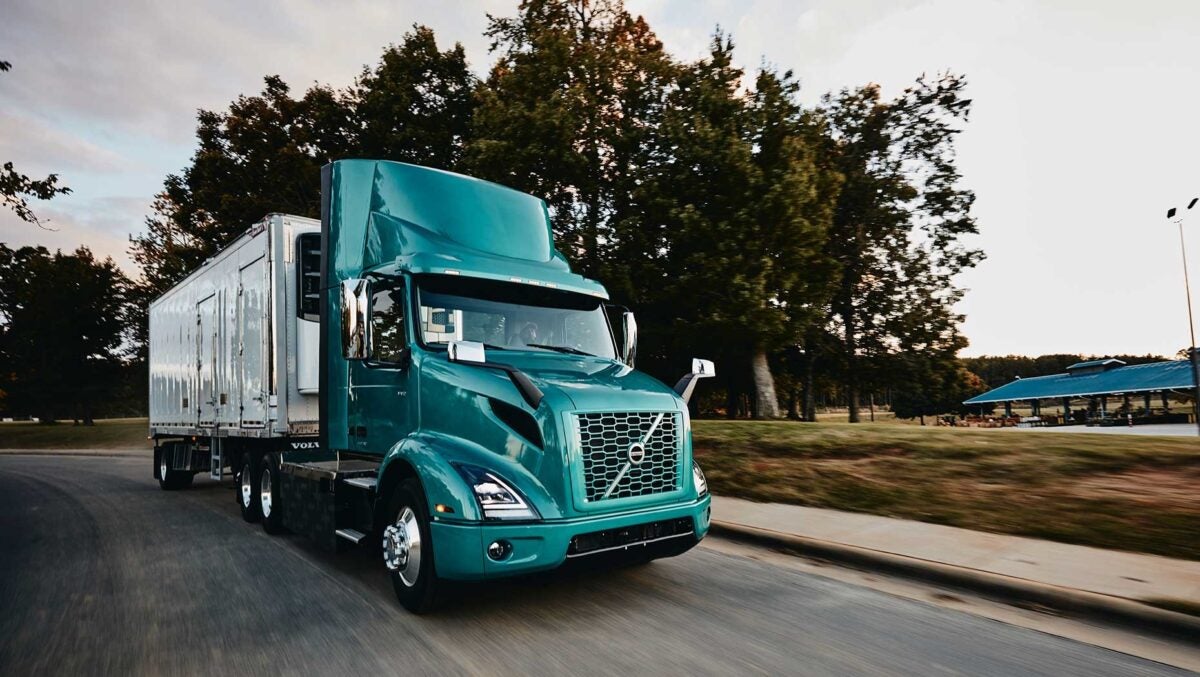Big fleets can afford to try out electric trucks that cost up to four times as much as diesel models. But what about digital freight brokers? Uber Freight and truck-as-a-service startup WattEV are working together to see whether zero-tailpipe-emission vehicles make sense for 3PLs.
“Our sustainability program’s mission is to decarbonize freight by building the industry’s-leading zero-emissions platform,” Illina Frankiv, Uber Freight’s head of sustainability, told FreightWaves. “It’s [through] our end-to-end platform that we can really enable both shippers and carriers to pursue the future of decarbonized freight through EVs.”
How much can Uber Freight and WattEV can learn from running two Volvo VNR Electric trucks from Oxnard, California, to the state’s warehouse-heavy Inland Empire? That remains to be seen. But both say it’s worth a try.
Early adopters and real-world scenarios
“If you look at the early adopters, it’s [mostly] larger carriers that could afford to buy the trucks. They could afford to put chargers behind the meter or behind the fence,” said Salim Youssefzadeh, founder and CEO of WattEV. “But those are not real-world scenarios.”
WattEV is using mostly grant money to build four supercharging depots in California. It is also assembling a fleet of subsidized electric trucks for lease to shippers and carriers.
The Uber Freight pilot is running loads for CHEP. The company provides pallets and containers to move goods from a raw material source through the point of sale.
“Our business relies on heavy-duty road transport, which is one of the biggest challenges to transition our value chain to net-zero emissions by 2040, CHEP’s long-term decarbonisation goal,” Marisa Sánchez Urrea, director of Global Supply Chain Decarbonisation at Brambles, CHEP’s parent company, said in a news release.
Information sharing from electric trucks and infrastructure
WattEV and Uber Freight share information on the state of charge of the trucks, cargo weight and charging locations. That allows Uber Freight to best match carriers and shippers. It’s the first known attempt to integrate electric trucks into third-party logistics.
“The major constraint right now is the charging, so WattEV solutions really opens up the network,” Frankiv said.
Uber Freight’s $17 billion of contracted freight has the diesel fuel model figured out.
“That’s where the biggest value of the platform comes in. [With] a few clicks of a button, you’re going to get matched. And your load is going to make it to wherever it needs to go on time because all the scheduling is performed. And it’s really low-touch loads,” Frankiv said.
Helping shippers get comfortable with electric trucks
“With EVs, because it’s really early, we still need to be able to communicate with the shipper and have them be comfortable,” she said.
Flexibility will be key to integrating electric trucks into 3PLs, Youssefzadeh said.
“Some of these loads are live loads. That means a truck usually has to sit and wait to be full or unloaded before they can move. But downtime costs money, especially for an asset that’s four times [the cost] of a diesel,” he said.
Dropping a trailer and sending an electric truck to top off its battery and return when the load is ready is one example of adjusting to electric trucks.
“We want to bring down that total cost of ownership by maximizing the usage of the vehicle and finding loads to make sure that truck is never moving empty,” Youssefzadeh said.
Uber Freight doesn’t care whether its customers purchase an electric truck or access it through a service like WattEV.
“That really opens up the amount of solutions that we’re able to provide on both sides, and that creates that full, extensive network to decarbonize but also to reduce those empty miles [and] idling,” Frankiv said. “That’s always going to be part of the equation. This just enables us to do it better because we have more tools at our disposal.”
Related articles:
Uber Freight expects ‘broad-based volume recession’ in 2023
Uber Freight cutting about 150 jobs, all in brokerage operations
Startup WattEV wants to revive the Pony Express for electric trucks











Silvio
UBER has $17B in contracted freight annually?